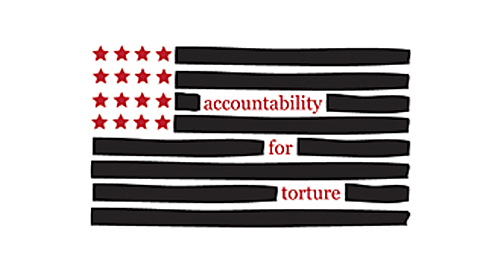
Nearly two years ago, a non-partisan, constitutional think tank called the Constitution Project assembled its blue-ribbon Task Force on Detainee Treatment to examine the treatment of detainees in the years following 9/11. Today, the Task Force released its report—a 550-page, comprehensive condemnation of the role of senior Bush administration officials in the torture and abuse of prisoners in U.S. custody.
Before getting to the report's findings, it's worth highlighting two things about the Task Force.
First, the Task Force was composed of an impressive array of former government officials, members of the armed services, politicians, diplomats, and professors. To give just a few examples, it included: Asa Hutchinson (a former Arkansas Congressman who served in President Bush's administration), David Irvine (a retired Army brigadier general who taught interrogation and military law for 18 years), Claudia Kennedy (the first woman to achieve the rank of three-star general in the Army), Thomas Pickering (a retired ambassador with a diplomatic career spanning five decades), and William Sessions (the former director of the FBI under Presidents Reagan, Bush I, and Clinton).
Here's how the Task Force describes its members:
The Task Force members include Democrats and Republicans; those who are thought to be conservatives and those thought to be liberals; people with experience in and sensitivity to national security issues and those who have an understanding that the government's reach and authority is subject to both tradition and law to appropriate limits.
In other words, the Task Force members crossed ideological and political divides.
Second, the Task Force reviewed countless pages of government documents relating to detainee treatment, including many of the approximately 150,000 pages of government torture documents obtained by the ACLU through years of Freedom of Information Act litigation. (You can read those primary-source materials in our Torture Database, the single most comprehensive and searchable repository of the government's own documents showing how the Bush administration's torture policies were formulated and the devastating impact on the victims and this nation's commitment to the rule of law.)
Also, importantly, the Task Force interviewed around 100 individuals involved in the U.S. detention and interrogation program: service members, interrogators, former detainees, lawyers, and politicians, among others.
What did this thorough and impressively staffed Task Force conclude?
It issued 24 findings, but the first two are the most essential. It concluded first "that it is indisputable that the United States engaged in the practice of torture." And second that "[t]he nation's most senior officials...bear ultimate responsibility for allowing and contributing to the spread of illegal and improper interrogation techniques."
Of course, these two findings are not new. We and many others have pointed out for years that our country tortured detainees after 9/11 and that senior members of the Bush administration were responsible. Now, however, a bipartisan, blue-ribbon task force—composed of experienced military members, interrogators, politicians, and professors—has added its considered judgment to those conclusions.
In its many recommendations, the Task Force has also joined the call for our leaders to acknowledge the torture that took place after 9/11, to disclose important but still secret documents relating to that torture, and to cooperate with pending investigations and lawsuits in the United States and abroad.
We wholeheartedly agree with these core conclusions and recommendations of the Task Force. Without taking these first steps toward reckoning with the torture that took place in our name, our nation will not be able to move beyond our shameful legacy of torture.
Learn more about accountability for torture and other civil liberty issues: Sign up for breaking news alerts, follow us on Twitter, and like us on Facebook.
Stay informed
Sign up to be the first to hear about how to take action.
By completing this form, I agree to receive occasional emails per the terms of the ACLU's privacy statement.
By completing this form, I agree to receive occasional emails per the terms of the ACLU's privacy statement.

